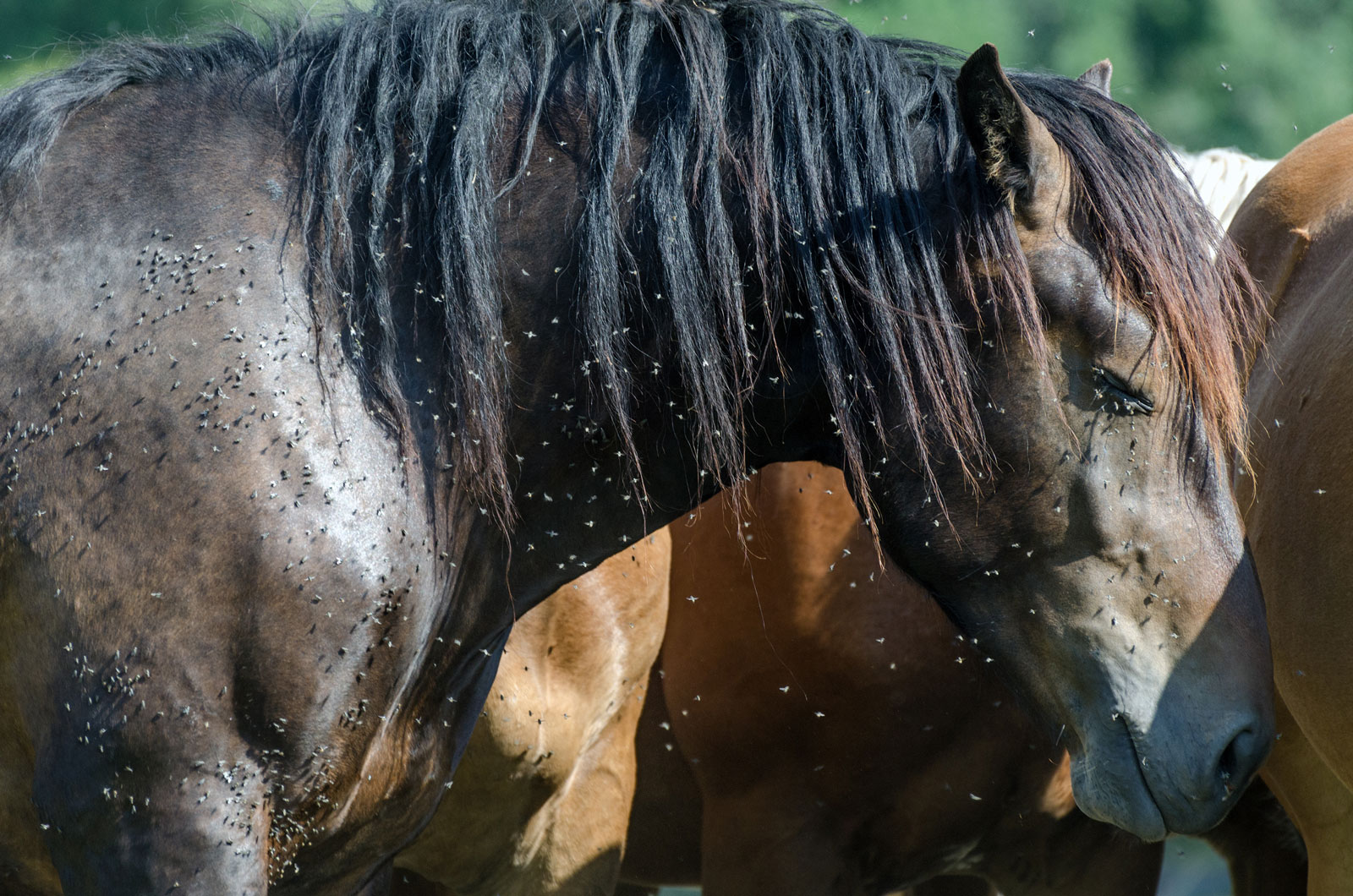
This article by Horse & Rider is an oldie but a goodie and much of it still rings true. Not much has been advanced in the world of fly control so this is a great article that addresses the root causes and standards of practice that continue to be the best line of defense.
“Flies–annoying pests? An understatement, at best. Not only do these adversarial insects bite, buzz and sting, they also spread disease.
The reality is that flies are enemies that come with horsekeeping, and you’re not going to be able to take down every single one. But you can educate and arm yourself on ways to put them into retreat. We’ll provide anti-fly management tips to help you reinforce your battlefield, and then we’ll deliver specifics on six weapons of mass destruction. We’ll help you identify some of the other side’s troops as well. Time to wage war…
First Line of Defense
Before we survey the heavy artillery, implement the following management tactics to make your facility the least hospitable to flies.
Control moisture. Insects are drawn to wet areas, where they breed as well as drink. Keep stalls dry; eliminate standing water in low-pasture areas and in such receptacles as old tires or feeders; create good drainage around your barn; repair plumbing leaks; cover rain barrels.
Manage/remove manure. Manure is the housefly’s meal of choice. (Despite its name, the housefly is a major horse-area pest. See “Enemy Troops” below.) Clean stalls, pens, and other confinement areas daily; if possible, completely remove manure to an off-site location once a week; or, cover manure piles with a heavy tarp or treat on-site for later removal.
Employ the power of air. For stalled horses, strategically place large fans in your barn–air blasts will keep flies at bay; for pastured horses, provide access to open, breezy expanses.
Keep flies’ foodstuffs under wraps. Dispose of garbage appropriately (enclosed under airtight lids); cover grains and other feeds securely.
Provide solace in the dark. Provide shade (some fly species avoid dark areas); turn off barn lights to avoid attracting flies and other insects.
Avoid unsavory neighbors. If possible, don’t pasture your horses next to cattle or other livestock; cow manure, especially, draws vicious horn and face flies.”
